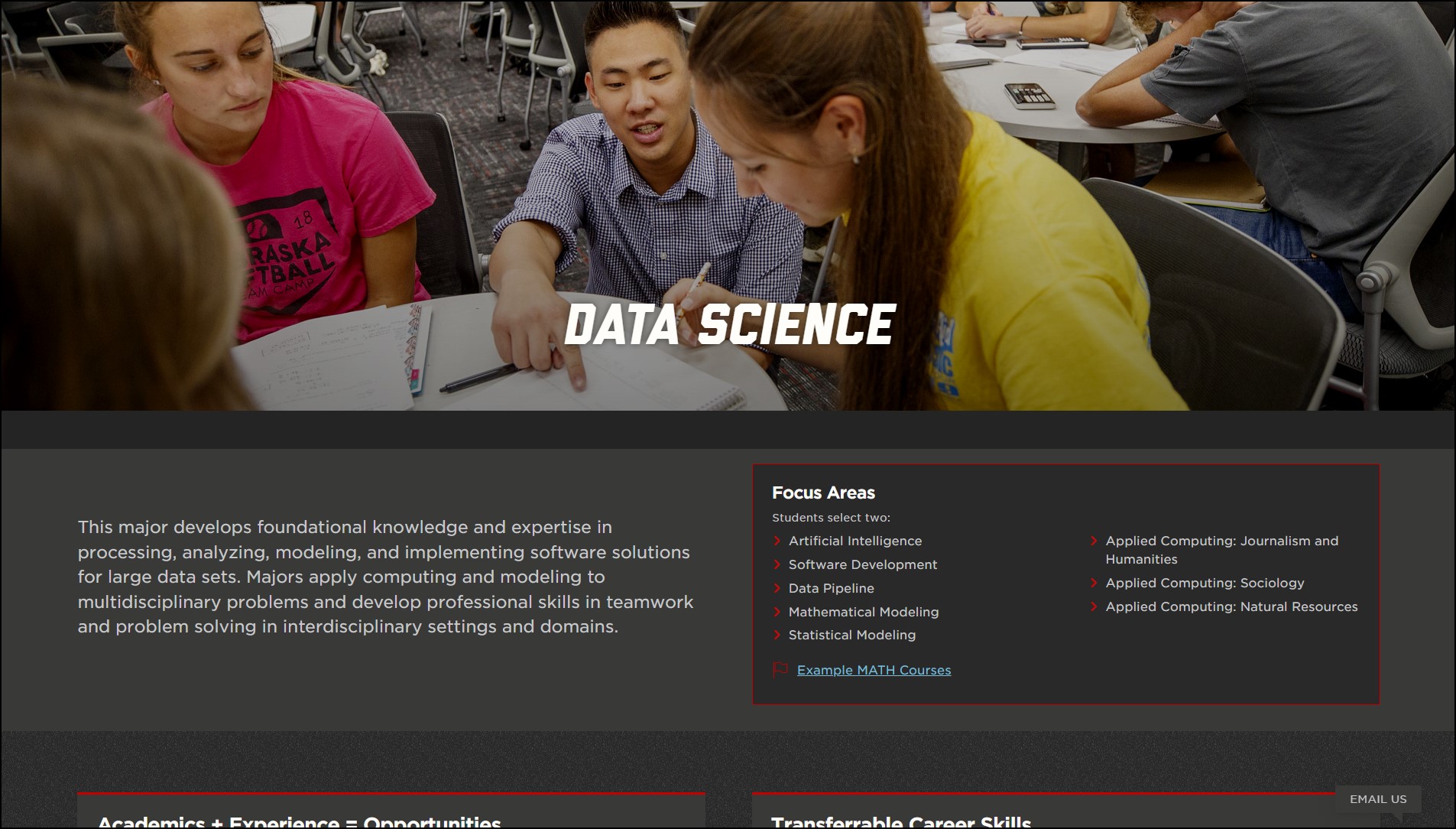
Starting with the Fall 2023 semester, the University will offer a Data Science major and degree program, and it will be possible to major in Data Science through the College of Agricultural Sciences and Natural Resources (aligned with the Department of Statistics), the College of Arts and Sciences (aligned with the Department of Mathematics), and the College of Engineering (aligned with the School of Computing). The three degrees will have slightly different requirements depending on the College, but the foundational major coursework will be the same.
Here is what the Foundational courses for the new Data Science major in the College of Arts and Sciences look like:
Computer Science (9 hours)
CSCE 155T (preferred if not double majoring), CSCE 155E, CSCE 155N, CSCE 155H, or CSCE 155A: Computer Science I (3 hours)
CSCE 311: Data Structures and Algorithms for Informatics (preferred if not double majoring) or CSCE 310: Data Structures and Algorithms (3 hours)
CSCE 320: Data Analysis (3 hours)
Mathematics (9 to 12 hours)
MATH 104: Applied Calculus (3 hours)
MATH 203/203J: Contemporary Mathematics (3 hours)
MATH 315: Linear Algebra for Data Science (3 hours)
OR
MATH 106: Calculus I (5 hours)
MATH 107: Calculus II (4 hours)
MATH 314: Linear Algebra (3 hours)
Statistics (6 hours)
STAT 218: Introduction to Statistics or STAT 380: Statistics and Applications (3 hours)
STAT 318: Introduction to Statistics II (3 hours)
OR
STAT 101: Introduction to Data (3 hours)
STAT 102: Principles of Statistical Analysis (3 hours)
Capstone (3 hours)
MATH 435: Math in the City (3 hours), which fulfills the ACE 10 learning outcome
The new Data Science major will offer 8 different options for Focus Areas, and students would be required to take 15 credit hours (12 hours for Engineering students) across two of the following Focus Areas: Artificial Intelligence; Applied Computing: Journalism & Humanities; Applied Computing: Natural Resources; Applied Computing: Sociology; Data Pipeline; Mathematical Modeling; Software Development; or Statistical Modeling.
Beyond the Foundational courses and the Focus Areas, each College’s Data Science major will have a professional experience/capstone requirement, and the College of Agricultural Sciences and Natural Resources’ Data Science major will require 10 additional hours of Statistics coursework. Additionally, each College’s general education requirements will be slightly different although the 10 ACE learning outcomes will still be required.
Since the Data Science major won’t officially start until the Fall 2023 semester, we don’t have much on our websites about the new major’s specific degree requirements. However, you can learn more about the College of Arts and Sciences Data Science major at https://math.unl.edu/undergraduate-data-science.
For now, it is our understanding that Doug Pellatz will be the academic advisor for the Data Science major advisor for students pursuing Data Science through the College of Arts and Sciences. In the other Colleges, Data Science majors will be advised the advisors in the School of Computing (Engineering) and the Department of Statistics (Agricultural Sciences and Natural Resources).
Questions? Please contact Doug Pellatz at dpellatz@unl.edu if you have questions about the Data Science major and degree in the College of Arts and Sciences.
More details at: https://math.unl.edu/undergraduate-data-science